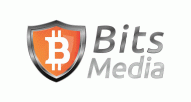EMI / AEMI Licensing in Lithuania
EMI / AEMI Licensing in Lithuania
Electronic money (e-money) institution (or EMI) is a licensed financial institution which may engage in e-money related services and payment services (as it would be described in details in the next paragraphs).
The full license for e-money is not limited in either time or area of activities. Thus, a holder of the e-money institution license in Lithuania shall be allowed to provide any services in the European Economic Area (EEA) without having to undergo a licensing procedure in any other member state. After the license in Lithuania is obtained the e-money institution may provide services in other EEA member states by establishing branches or by means of pass porting (with the use of freedom to provide services).
Also there is the option to apply for a limited license e-money institution. Such limited license holder (owner) would be able to provide services in the territory of the Republic of Lithuania; also some restrictions in relation to the turnover of the company would be applicable.


Advantages of EMI License in Lithuania
Advantages of EMI License in Lithuania
This financial structure allows solving the main complexity of the current world economic situation for a large transnational business - banking services and international transfers (especially in USD currency). Also one of the distinguishing features of this type of financial structure is the possibility:
Allowed Activities.
The EMI license allows acting with a lot of services and propositions. Here is the list of allowed activities:
- Receiving of SWIFT.
- Issuance of IBAN accounts to clients of the institution.
- Remote (via the Internet) opening accounts, both to individuals and legal entities.
- Issuance of Visa or MasterCard payment cards linked to the customer's account.
- Possibility to make payments with banks around the world in USD/EUR/GBP and other currencies.
- The ability to accept payments from any international account in the SWIFT system.
- Independent decision-making on making payments and opening accounts.
- Possibility of opening correspondent accounts around the world.
- Own AML department.
- Services enabling cash to be placed on a payment account as well as all the operations required for operating a payment account.
- Services enabling cash withdrawals from a payment account as well as all the operations required for operating a payment account.
- Execution of payment transactions, including transfers of funds on a payment account with the user’s payment service provider or with another payment service provider:
- Execution of direct debits, including one-off direct debits;
- Execution of payment transactions through a payment card or a similar device;
- Execution of credit transfers, including standing orders.
- Execution of payment transactions where the funds are covered by a credit line for a payment service user:
- Execution of direct debits, including one-off direct debits;
- Execution of payment transactions through a payment card or a similar device;
- Execution of credit transfers, including standing orders.
- Issuing of payment instruments and/or acquiring of payment transactions.
- Money remittance.
- Payment initiation services.
- Account information services.
- Issuing e-money and the provision of operational services and closely related ancillary services in respect of the issuing of electronic money or to the provision of payment services referred to in point.
- Operation of payment systems.
Business activities other than issuance of electronic money, having regard to the applicable Community and national law, etc.
Licensing of Electronic Money in LITHUANIA
Licensing process requires a lot of actions to realize. Despite that fact, there is a direct order to get a license in Lithuania for EMI activities. At the initial stage, the future owner of the EMI license should
Requirements
Requirements
- Be at least 18 years old;
- To have initial capital in the amount of not less than 350 thousand Euro for share capital for the AEMI license type;
- To obtain an EMI license, no minimum initial capital is required;
- Owning a bank account for individual or corporate purposes;
- To have available documents confirming income (tax declaration or certificate from tax control authorities);
- Do not have restrictions or prohibitions from the regulatory authorities of the EU and Lithuania;
- Acquisition (or long-term lease) of real estate (building or office) for the company.
Other tasks relating to the licensing of e-money institution which may require additional time include
Other tasks relating to the licensing of e-money institution which may require additional time include
- Preparation of business model and business plan;
- Filling in the management positions (certain qualification and experience requirements are applicable);
- Preparing description of IT system (and other planned technical solutions);
- Preparing the accountancy system description;
- Contracting third parties (e.g. auditing company).
Documents for Licensing of an Electronic Money Institution
Documents for Licensing of an Electronic Money Institution
-
Articles of association;
-
A program of operations;
-
A business plan, including a forecast budget for the first three financial years which demonstrates that the electronic money institution is able to operate soundly and employs the appropriate internal control systems, procedures and resources;
-
The evidence that the minimum size of the equity capital does not fall below the required amount;
-
A description of the measures taken for safeguarding electronic money holders’ funds, and where payment services not relating to issuance of electronic money are to be provided, also a description of the measures taken (to be taken) for safeguarding payment service users’ funds;
-
A description of the governance arrangements and internal control mechanisms applied, including administrative, risk management and accounting procedures;
-
A description of the internal control mechanisms established in order to comply with obligations in relation to prevention of money laundering and terrorist financing;
-
A description of the structural organization, including the intended use of branches, agents, natural or legal persons through which the electronic money institution intends to distribute or redeem electronic money or other entities to which activities will be outsourced, and a description of participation in payment systems;
-
The data on the identity of persons holding qualifying holdings in the authorized capital and/or voting rights of the electronic money institution, the size of their holdings in the authorized capital and/or voting rights, also evidence of the suitability of these persons taking into account the need to ensure the sound and prudent management of an electronic money institution;
-
The identity of directors, including the persons responsible for the management of the electronic money issuance activities of the electronic money institution as well as evidence that they are of good repute and meet the requirements set forth by the legislation;
-
Data of an audit firm which performs audit or a certified auditor independently performing audits;
-
The address of the registered office.
-
Certain other documents, e.g. lease agreement of the premises, are also presented to the Bank of Lithuania when applying for a license. It should also be mentioned that the Directive 2015/2366 on payment services in the internal market (PSD2) (also applicable for e-money institutions) establishes additional requirements in relation to the documents and contents thereof. The requirements prescribed by PSD2 are yet to be transposed to Lithuanian legislation (the term of transposition into national legislation is 13 January 2018), nonetheless, the supervisory authority requires the documents submitted to be in compliance with the PSD2 and relevant guidelines.
-
Please note that most of the documents can be submitted in English language, thus, the translation costs are avoided.
Process of Licensing of E-Money in Lithuania
Process of Licensing of E-Money in Lithuania
- The signed papers will be considered by the Central Bank of Lithuania no longer than 3 months from the filing date. The decision to issue a license for EMI will be made after consideration of the above documents within the same 3 months.
-
In case when there is to be identified any imperfections in the documents regarding the form of the document, as well as in their content, the controlling authority will request for the missing information, or corrected form according to regulatory requirements. In this case, considering period (3 months) is to be counted from the date when the last documents were filed.
The full-in process of licensing is taking the following activity into three stages.
PROCESS
PROCESS
STAGE I
STAGE I
-
Signing and collecting the necessary documents;
- Step № 1. Agreement signing for AEMI license
-
Step № 2. Information collection and conduct of KYC on beneficiary and directors:
- Certificate of incorporation
- Power of attorney
- Shareholder register
- Articles of association
- Details of Beneficial Owner(s)
- Technical documentation about the e-wallet
- Declaration of company’s income over the past few years
- UBO income statement for the last few years
- Information about directors
- CV
- AML certificates
- Current company wallet account procedures
- Step № 3. Legal entity set-up (with Legal address registration, local phone number registration, rental of real estate for the directors and registration of local phone numbers for the directors);
-
Step № 4. Filling out preliminary forms:
- Regulatory Business Plan
- Organization structure chart
- IT control forms
- Financial forecast forms
STAGE II: Registration of financial and reporting documentation
STAGE II: Registration of financial and reporting documentation
- Step № 1. Application for VAT number & bank account opening;
- Step № 2. Agreement signing with accounting firm;
- Step № 3. Gap analysis and planning (it indicates the Company and its documents deep analysis);
-
Step № 4. Legal entity set-up with Banking account opening and the application preparation. It includes also:
- Regulatory business plan review and sign off;
- Risk management workshop;
- Risk management and controls framework design and documentation;
- Risk controls framework sign off meeting;
- Step № 5. EMI / AEMI application pack completion and signing-off meeting.
STAGE III: Applying for and obtaining an EMI license
STAGE III: Applying for and obtaining an EMI license
-
Step № 1. Registration of the application for the license
-
Step № 2. Liaison and Decision of results from the National Bank.


Cost of License for Electronic Money in Lithuania
The cost of EMI license is about 23 000 Euro and more (depends on the type of license, license time and other supplied services). Law and Trust International propose to obtain a necessary Lithuanian EMI license with all requires and laws. We give a high specter of opportunities for very interested person. Law and Trust gives:
- A well-qualified law assistance;
- Submitting the documents and conversations with Lithuanian Treasury and Central Bank of Lithuania;
- Filling the required papers and applications;
- Legal support and representation of your interests in the Ministry of Finance, the Central Bank of Lithuania, when drafting agreements with third parties (audit companies, service providers)
- Registration of companies, TMs, services and intellectual property;
- Opening bank accounts and VAT numbers in Lithuania;
- Creating a legal opinion for the payment system, working with cryptocurrencies, banking systems.
After the process of obtaining the necessary license we would give it to you personally or by courier delivering. You just don’t need to waste your time for taking an EMI license.
If you are ready to get your EMI license in Lithuania, please contact our lawyers for a free consulting.
Our clients
























